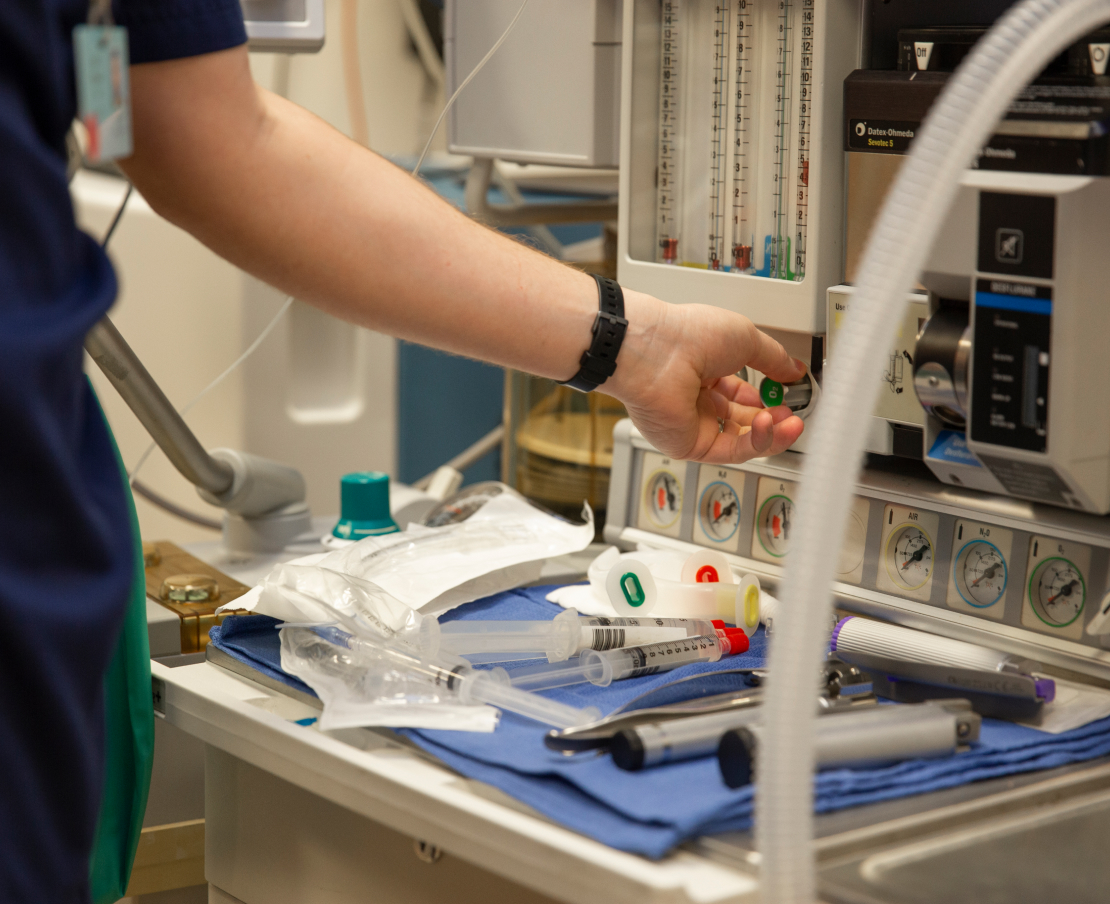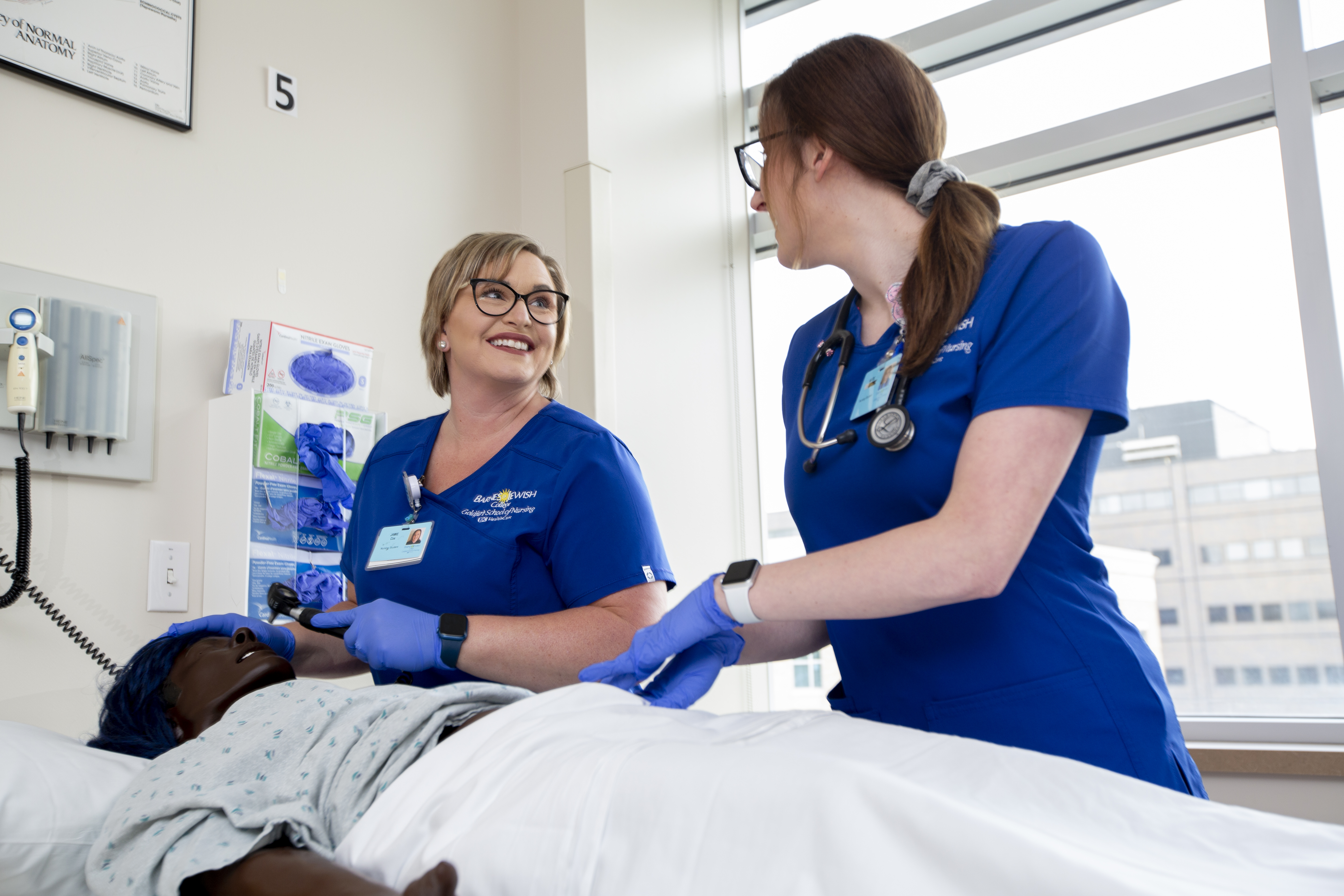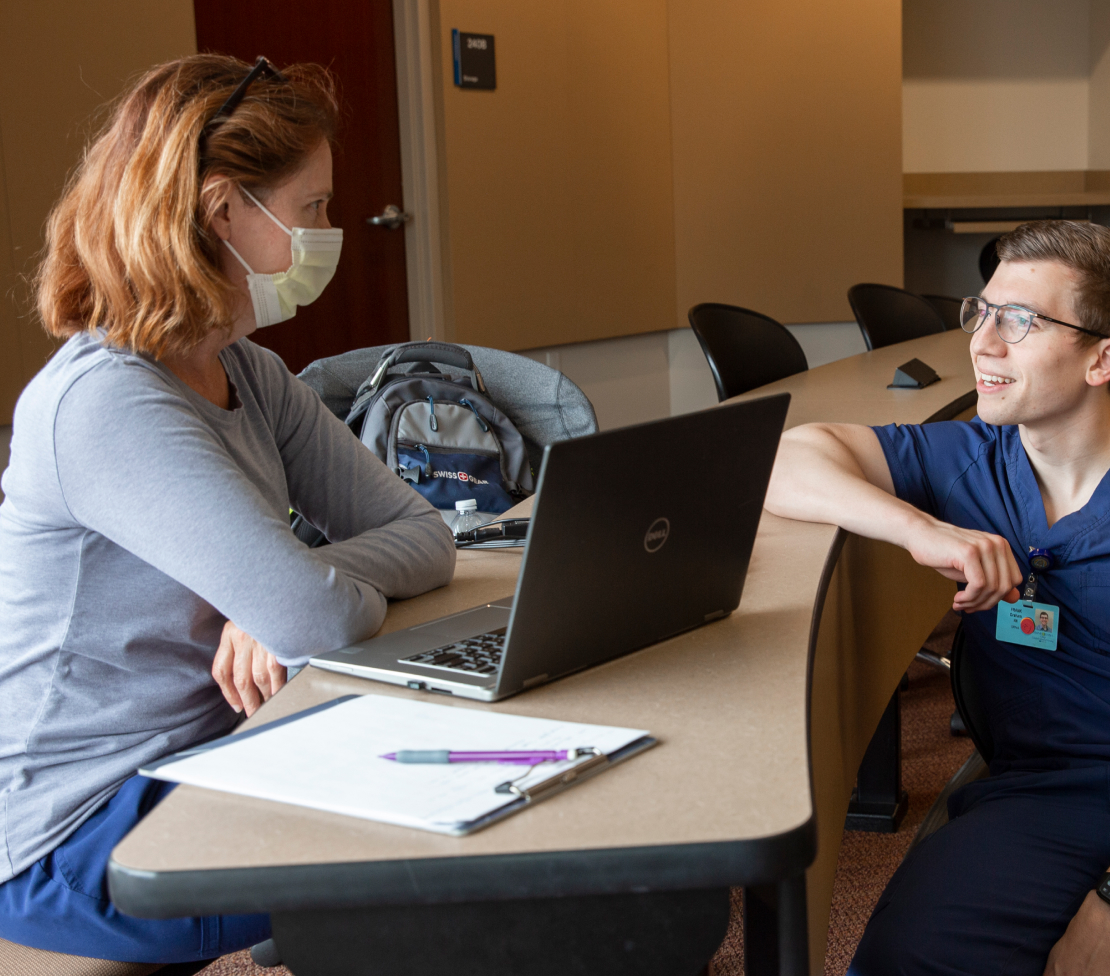Our Doctoral Degree Concentrations and Options
The Doctoral Degree concentrations at Barnes-Jewish College Goldfarb School of Nursing are created for registered nurses who have earned their BSN and are interested in pursuing advanced leadership roles in nursing practice and research positions in academia, as well as in the research departments of leading health institutions and hospitals.
The Doctor of Nursing practice has six concentrations: Nurse Anesthesia, Health Systems Executive Nurse Leadership, Adult-Gerontology Primary Care Nurse Practitioner, Adult-Gerontology Acute Care Nurse Practitioner, Family Nurse Practitioner, and post MSN DNP.
Goldfarb's Nurse Anesthesia program is ranked #11 "Best Nursing-Anesthesia School 2024" by U.S. News & World Report!
Goldfarb's PhD Program is offered in collaboration with Washington University where students choose their interests with faculty mentors.








Doctoral Degree Outcomes
DNP
New DNP Student Learning Outcomes
Upon successful completion of a doctoral degree, the graduate will be able to:
- Integrate, translate, and apply scientific underpinnings to improve nursing practice, clinical judgement and patient outcomes within the four spheres of care.
- Design, implement, and evaluate safe, evidence-based, person-centered, compassionate care.
- Influence population health, including improvements in health care policy, utilizing effective collaboration and advocacy strategies to ensure diversity, equity, and inclusion.
- Employ nursing scholarship to advance nursing practice, optimize care, address health inequities, and take actions that target high priority social determinants of health.
- Apply principles of quality improvement, ethics, and safety at both the individual and systems levels.
- Effectively communicate and collaborate with care team members, patients, families, communities, and other stakeholders to optimize care, enhance the healthcare experience, and strengthen outcomes.
- Lead innovative strategies that promote the provision of safe, cost-effective, equitable care to diverse patient populations across complex healthcare systems.
- Utilize information systems, communication technology, and informatics to improve and transform healthcare systems.
- Demonstrate professionalism, including participation in activities that support nursing’s professional identity, accountability, ethical principles, and values.
- Participate in activities and self-reflection that foster personal health, resilience, well–being, lifelong learning, competence, and leadership.
Prior DNP Student Learning Outcomes
Upon successful completion of a doctoral degree, the graduate will be able to:
- Integrate scientific underpinnings which support the translation of nursing research to improve nursing clinical practice.
- Design and evaluate safe, cost-effective, patient care delivery strategies to meet the needs of patient populations and positively influence health outcomes.
- Apply clinical scholarship and leadership skills to advance nursing practice.
- Utilize information systems/technology and patient care technology to improve and transform healthcare.
- Demonstrate knowledge to develop, implement, and evaluate health care policy to advocate for patient populations.
- Engage in effective communication skills to lead and participate in inter-professional collaboration for improving patient and population health outcomes.
- Lead culturally sensitive, preventative, population focused health services based on epidemiological, biostatistical, and environmental data.
- Demonstrate advanced nursing practice at the individual, family, and population levels.
PhD
Upon successful completion of the PhD degree, it is expected that students will be able to:
- Generate and disseminate new knowledge by developing and evaluating interventions to improve health outcomes
- Integrate culturally competent and ethically responsible research practices as a response to health disparities and identified needs
- Lead and promote interdisciplinary teams to conduct health-related translational research and evidence-based equities
- Communicate nursing research findings to influence health policy decision-making and to promote health equities
- Conduct scholarly activities through research, teaching, mentoring and service to support the discipline and practice of nursing
- Provide leadership in advancing the profession through discovery, application and integration of nursing science

